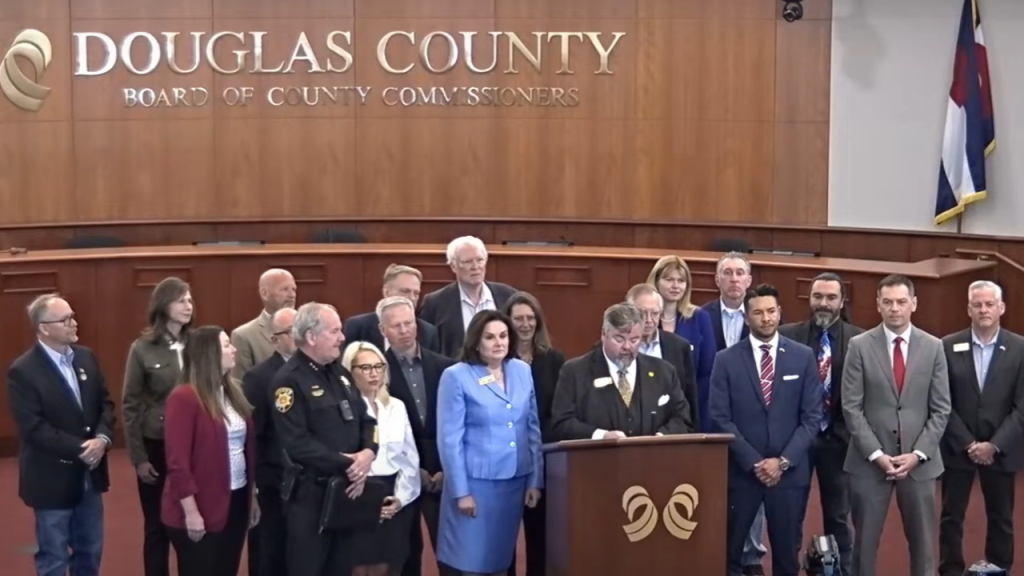The county of Douglas in Colorado has filed a lawsuit against Governor Jared Polis and the state over sanctuary immigration policies. The county is specifically referencing Colorado House bills 19-1124 and 23-1100, which currently prohibit the state from complying with the federal government on immigration matters. These bills prevent Colorado police from arresting and detaining undocumented immigrants based on their immigration status, as well as prohibiting state judges from sharing information with ICE. Additionally, local governments are barred from entering into agreements with the federal government regarding immigration enforcement.
County Commissioner Abe Laydon expressed support for the lawsuit, recognizing the challenges faced by those seeking refuge and asylum in the county. However, he emphasized the importance of prioritizing the rights of legal residents in Douglas County. A press conference held by the Douglas County Board of County Commissioners Chairman George Teal highlighted the belief that these laws are in violation of the Colorado State Constitution and contribute to the presence of an illegal immigration crisis within the country. The county aims to push back against state laws that prevent collaboration with federal authorities to enhance the safety and security of Douglas County and its communities.
Similar lawsuits have been filed in recent years in other parts of the country. In 2018, the city council of Huntington Beach in California voted to sue the state over an immigration-related law signed by former Governor Jerry Brown. The Orange County court ruled in favor of the city, indicating a precedent for local governments challenging state laws on immigration issues. Governor Polis’s office declined to provide a comment in response to inquiries from Fox News regarding the lawsuit filed by Douglas County.
The lawsuit filed by Douglas County reflects a growing trend of local governments challenging state laws on immigration policies. The county’s decision to take legal action against the state highlights the concerns over the impact of sanctuary policies on public safety and community welfare. By seeking the right to collaborate with federal authorities on immigration enforcement, Douglas County aims to address the illegal immigration crisis and enhance the security of its residents. The lawsuit emphasizes the importance of upholding the rule of law and protecting the rights of legal residents in the face of increasing immigration challenges.
The concerns raised by the Douglas County officials regarding the impact of sanctuary policies on the local community underscore the complex and contentious nature of immigration issues in the United States. The lawsuit signifies a broader debate over the role of local governments in shaping immigration policies and collaborating with federal authorities. By challenging the state laws that restrict cooperation with ICE and federal immigration enforcement efforts, Douglas County aims to assert its autonomy and prioritize the safety and security of its residents. The outcome of the lawsuit could have significant implications for the ongoing debate over sanctuary policies and immigration enforcement at the state and local levels.
The decision by Douglas County to file a lawsuit against the state of Colorado over sanctuary immigration policies reflects a larger trend of legal challenges to state laws on immigration issues. The county’s efforts to push back against state restrictions on collaboration with federal authorities highlight the tensions and complexities surrounding immigration policy in the United States. By taking a stand against sanctuary policies that limit enforcement efforts and information sharing with ICE, Douglas County aims to protect the rights of legal residents and address the challenges posed by undocumented immigration. The outcome of the lawsuit will likely have broader implications for the ongoing dialogue on immigration policy and the balance between state and federal authority in addressing these issues.


